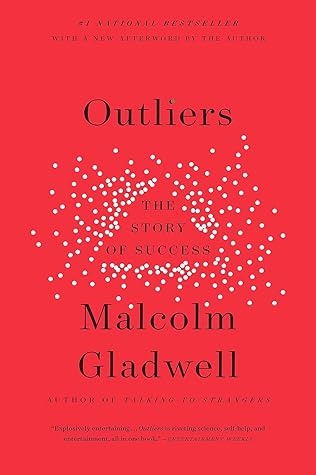More on this book
Community
Kindle Notes & Highlights
If you make a decision about who is good and who is not good at an early age; if you separate the “talented” from the “untalented”; and if you provide the “talented” with a superior experience, then you’re going to end up giving a huge advantage to that small group of people born closest to the cutoff date.
Denmark waits to make selection decisions until maturity differences by age have evened out.
It is those who are successful, in other words, who are most likely to be given the kinds of special opportunities that lead to further success. It’s the rich who get the biggest tax breaks. It’s the best students who get the best teaching and most attention. And it’s the biggest nine- and ten-year-olds who get the most coaching and practice. Success is the result of what sociologists like to call “accumulative advantage.”
Achievement is talent plus preparation. The problem with this view is that the closer psychologists look at the careers of the gifted, the smaller the role innate talent seems to play and the bigger the role preparation seems to play.
the thing that distinguishes one performer from another is how hard he or she works. That’s it. And what’s more, the people at the very top don’t work just harder or even much harder than everyone else. They work much, much harder.


